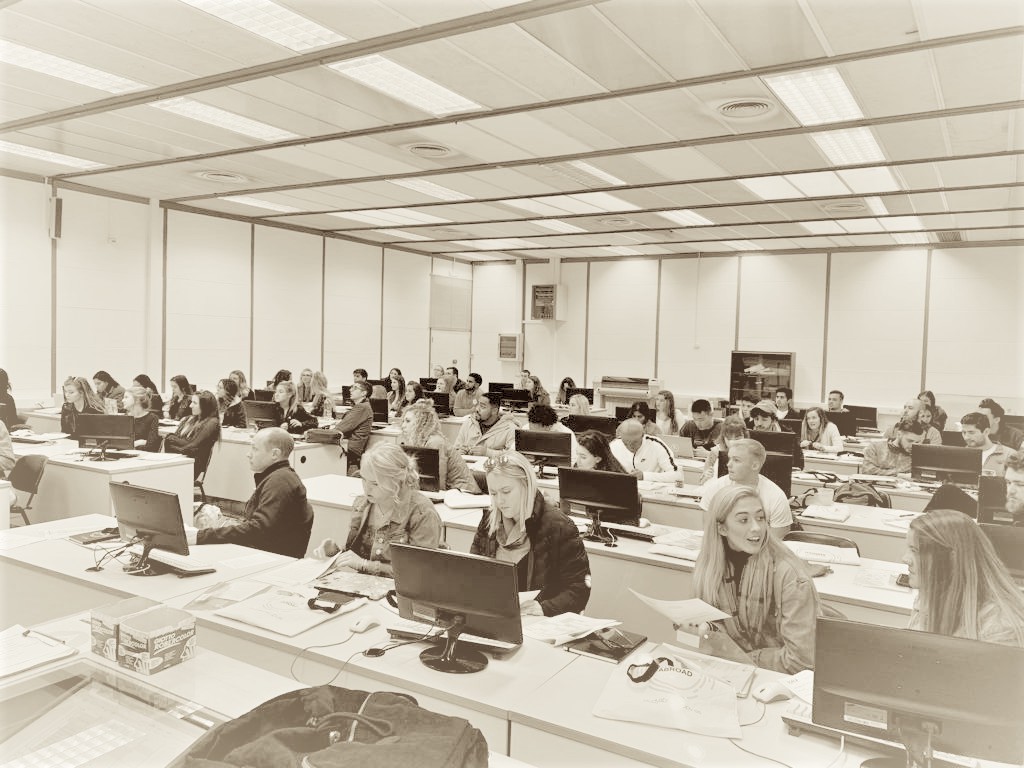
|
|

• Attendance
• Assessments
• Sexual Harassment Policy
• Students With Disabilities
• Academic Honesty Policy
• University Ombudsman
• Statement On Audio And Video Recording
• Syllabus Change Policy
International Business
3 Credits | 400 Level | 38 Contact hours
Internatinal Business, 8th Edition by Collinson S., Narula, R. and Rugman, A.M. (2020) Pearson
Also, more supplemental materials at:
https://open.umn.edu/opentextbooks/textbooks/international-business
International Management: Managing in a Diverse and Dynamic Global Environment (Arvind V Phatak, Dr. Rabi S Bhagat, Roger Kashlak) 2nd edition. Mac Graw Hill. ISBN: 978-073210575 (2008)
This course will cover topics related to the challenges of competing in a global economy. Students will acquire knowledge in strategic management in a global competitive environment, and develop the ability to effectively analyze how culture impacts motivation, leadership, communication, negotiation, decision-making, HRM practices, and management of a multicultural workforce.
1 Introduction to course and syllabus
2 Introduction to International Business
3 General Frameworks in International business
4 Entry modes
5 Real cases: Ikea and Walmart
6 International politics: the political environment and political risk
7 International politics: Economic integration
8 Review for mid-term
9 Mid-term exam (expected for end February)
10 The cultural environment
11 The cultural environment - Case
12 International trade
13 Strategies for international competition
14 Real Cases
15 Organizing and controlling international operations
16 Corporate Strategy - Real cases
17 Emerging economies
18 Key regions: China
Upon successful completion of this course, students will be able to:
• Make use of different sources to identify information about the political, economic, social, technological, legal, and cultural in specific countries and will be able to analyze this information to determine how these countries may present attractive business opportunities for American companies.
• Make use of qualitative as well as quantitative factors to describe and compare cultures of different countries and apply this information to develop an understanding of the unique characteristics of different regions around the world.
• Demonstrate an acute awareness of current political, economic, and social events worldwide and will be able to explain how these events relate to business practices.
Class Attendance and Pop Quiz:
There will be one unannounced pop quiz during the semester. The quiz may not be rescheduled.
Case Discussions:
Students are required to participate in case discussions throughout the semester. Students must come to class prepared, having completed all homework, and assigned readings. Case discussions can be based upon in-class reading texts or homework readings/cases. I expect a good class performance
Integrative Term Project and Case Presentation (CAPSTONE):
Students are required to work together in a team to complete the case presentation and the term project. The term project (CAPSTONE) will consist of a 20-page research paper, typed, double-spaced. All papers must include each student’s name and submitted in hard copy (one per group), stapled.
The case presentation will be a group presentation on a case related to the term project. Each group must prepare a 20-minute PowerPoint presentation with each student speaking at least 5 minutes. This is due to last week of July 22-23, max. per group is 3 students. The instructor will provide each team with a topic (e.g. Brexit, US-China trade war; Google in China; NAFTA; others…..etc.)
Exams:
There will be 1 exam, 60%. It will cover lectures and readings from previous classes and will consist of several questions, primarily multiple choice and true/false.
Assessment:
Homework, presentations, assign. 25%
Integrative Term Project 15%
Exam 60%
|
